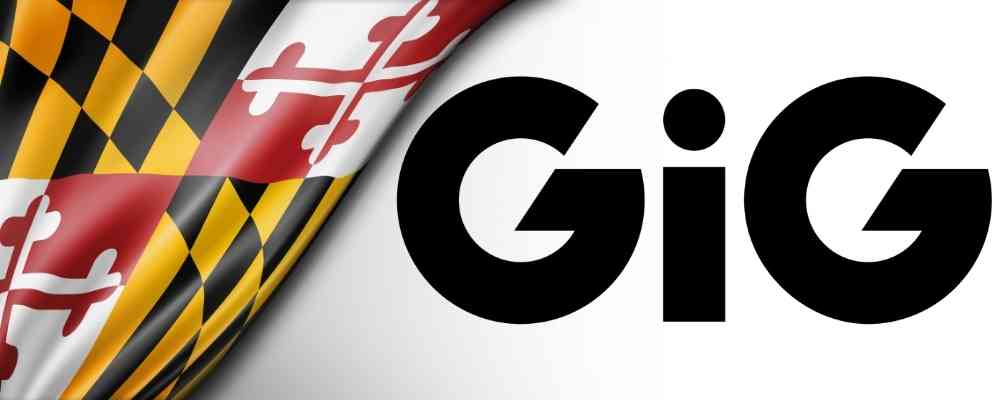How Maryland uses its tax revenue from gambling

Maryland is one of the states that have embraced gambling to generate revenue. The state has several venues where people can gamble, including casinos, racetracks, and lottery games. Maryland takes in tax revenue from all of these venues. It uses that money to fund essential programs and services.
What Maryland Does With Its Taxes on Gambling
Maryland is one of the few states that does not have a lottery. However, it does have legalized gambling in the form of casinos and racetracks. As a result, the state receives significant revenue from these businesses, which it uses for various purposes.
Casinos are also a significant source of jobs in Maryland. They employ over 16,000 people, which is more than the number used by Walmart, Mcdonald’s, or Starbucks in the state. In addition, the industry has been a significant contributor to tourism growth in Maryland.
Sportsbooks
15% of MD sports betting revenue is exempt from taxes as part of Blueprint for Maryland’s Future Fund, which funds education and early education programs.
The fund’s goal is to close gaps between people from various backgrounds, including age, gender, race, ethnicity, disability, and various other features. As a result, pre-K is expanded, teachers can seek mentorships, and greater access to SATs is made possible, among other things.
Since the legalization of sports gambling, Maryland has committed $1.8 million to this cause in December 2021.
Casinos
The many casinos in Maryland pay different tax rates based on the source of their game revenue. For example, casinos retain 50 percent of earnings from slot machine games but only pay 20 percent from table games.
Maryland casinos, like sportsbooks, demand tax payments. But unfortunately, all of the proceeds from these laws don’t go to education programs, even though the vast majority of the tax money does go to the Education Trust Fund, followed by Local Aid.
The state also gets a cut of the proceeds from horse racing, which is viewed as a sport. Half goes to two pension funds, the Racing Purse Account for the Purse and the Racing Facility Renewal Account for Renovations.
Next, a small percentage of funds is sent to Maryland s Small, Minority, and Women-owned Business Fund. Specifically, Maryland created the Video Lottery Terminal Fund to collect casino slot machine money. This fund allocates 50% of its earnings to businesses close to the state s six casinos. The remainder of all the qualified companies throughout the state.
Maryland Lottery
The Maryland Lottery’s profits go towards the state’s general fund. However, the general fund extends much further into many of Maryland’s programs, including protecting citizens, health and safety services, and much more.
2022 will be similar to 2021 if gamblers invest a lot in the state’s gambling programs. Casino revenue will contribute $723.5 million in 2022, and the Maryland Lottery’s ticket sales will not be far behind at $667.4 million.
Some states continuously receive sports wagering licenses through an application procedure that takes considerable time. Medals may reach up to 60 licenses at present.
Maryland Sports Betting Revenue
In 2021, Maryland became one of the states in the country to allow legally operated sports gambling establishments. As part of an effort to legitimize this practice, all 5 of its casinos have become authorized to accept regulated bets. In addition, professional teams and stadiums, racetracks, bingo halls, bars, and restaurants will also begin receiving gambling activities shortly.
Throughout 2022, fans expect to see the first MD mobile sports betting apps launch. Legal sportsbooks in Maryland are hopeful that these mobile apps will launch by the Fall of this year.
The sports betting market is projected to earn up to $3 billion once its market matures. It could generate up to $200 million in revenue and $35 million in annual sales tax revenues.
How big could sports betting become?
Before figuring out how much revenue sports betting could make, you must understand a few key terms:
- Handle
- Gross gaming revenue
- Tax revenue
Handle
This is the amount of money wagered by bettors, which is one of the essential factors in sports betting. The higher the handle, the more money is being wagered and the more interest in a game.
This means that bookmakers can offer better odds and attract more bettors. It also means more money is on the line if a game goes against expectations.
Sportsbooks use handles to measure how successful they are. The higher the handle, the more money they make. They also use it to set limits on bets because they don’t want too much money being wagered on a single game. Therefore, bettors should be aware of the handle when making their bets, as it can significantly impact the odds.
Gross gaming revenue
This is the total amount of money that a casino or other gaming establishment takes in from customers. This figure includes money wagered on games and any side-bets or complementary services (like food and drink). It does not have winnings paid out to customers, however. Gross gaming revenue can be thought of as the “house take” or “bottom line.”
This figure is vital for casinos and other gaming establishments because it helps track how much money they are making (or losing) on a given night. It is also used to calculate things like taxes and licensing fees. And finally, it can be used as a benchmark against which a casino’s success (or failure) can be judged.
Tax Revenue
Money that regulators collect from sportsbook operators is used to fund essential government programs.
Maryland would be on its path to market maturity by the third year. By then, sports betting operators would be expected to realize $3.1 billion in revenues, resulting in between $125 million and $225 million in taxes.
Licensing fees for sports betting
- Class A-1: $2 million license fee$500,000 renewal fee every five years
- A-2: $1 million license fee$300,000 renewal fee every five years
- Class B-1: $250,000 license fee$50,000 renewal fee every five years
- B-2: $50,000 license fee$10,000 renewal fee every five years
- Mobile: $500,000 license fee$100,000 renewal fee every five years





